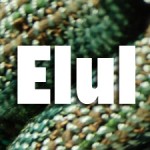 Today is the first day of the month of Elul.
Today is the first day of the month of Elul.
The rabbis say that Moses ascended Sinai for the last time on the night of Rosh Hodesh Elul. He went to recover the covenant, to make it anew. The first tablets had been destroyed after the terrible debacle of the Golden Calf. Hope seemed broken beyond repair.
And yet, Moses ascended. This time, God told Moses to carve the tablets. This time, the covenant would be carved and inscribed by both human and divine energies.
Elul was – and is – a month for reflection: Moses remained above with God, learning that the covenant would have to be a joint project. The Israelites stayed below, reflecting on the burdens they had schlepped into their new lives. How could they let go of things they no longer needed to carry?
The name of the month of Elul has exactly the same numeric value as the word binah, wisdom. It is a good time to reflect on the stuff of the past year, on the pain and trouble we have carried, the misguided decisions and the hasty actions we could wish away. It is a time to reflect on hopes and dreams yet unrealized, on the longing to draw near to God.
Elul: The name of this month is an acronym, so our sages say, for a well-known phrase from Song of Songs: Ani l’dodi v’dodi li: I am my beloved’s, and my beloved is mine. During Elul, we hear the call of our Beloved in the shofar that is sounded each day of the month in traditional communities. That primal sound awakens us, reminds us.
For what? To discover our own wisdom. To reflect on who we are now and who we long to become.
As we walk through each of the last thirty days of this year, let us begin opening up our hearts and minds. Let us prepare for these High Holy Days with consciousness and joy.
Take some time to write, in your own words, about the fears and troubles of this last year in your Books of Life or in journals you might buy for yourselves. Write about your joys, too. Ask yourselves what wisdom you long for. Listen, Israel.
Our covenant is being rewritten and reinscribed every year. During the month of Elul, we partner with God in the renewal. As this year ends, we define what we long for in the next.
Elul: Wisdom and love. May we go up just as Moses did, and may we, like Moses, receive.









